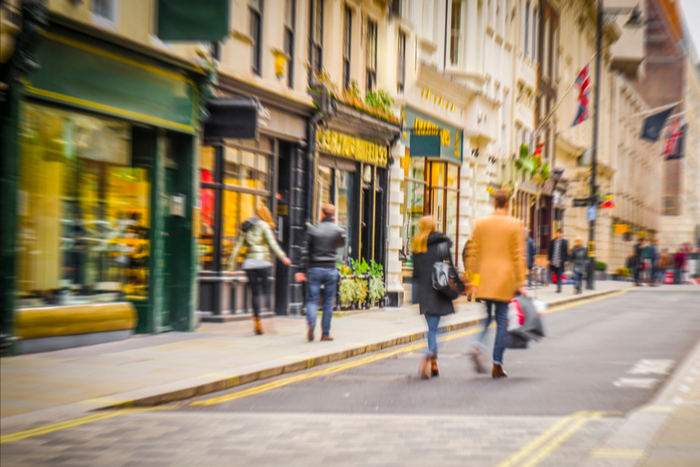// British Independent Retailers Association shares “life after lockdown” strategy for retailers
// Group called for restrictions to be first lifted for smaller shops
// The strategy consists of a 10-point plan
The British Independent Retailers Association (Bira) has shared a 10-point “life after lockdown” strategy and urged the government to consider lifting restrictions on smaller retailers first.
In an open letter on Bira’s website, chief executive Andrew Goodacre’s 10-point survival plan encouraged retailers to consider multichannel sales, sustainable retail, customer-focused experiences.
He also highlighted that retail would require government support, and urged retailers themselves to find ways to keep staff and customers safe.
READ MORE:
- Landlords in talks to have taxpayers subsidise unpaid retail rent
- Coronavirus obliterates hopes of improved retail health for 2020
- 20% of high street shops won’t re-open after lockdown, MPs warned
“When faced with the day-to-day problems of managing a business that is closed and no cash coming in, it can be difficult for a retailer to think about life after lockdown,” Goodacre wrote.
“However, that’s exactly what everyone in retail has to do, none more so than the independent retailers at the heart of every good high street.
“Primarily, we must accept that going ‘back to normal’ is not an option. The way Covid-19 has disrupted our daily lives and businesses in all sectors, suggests that a ‘new normal’ is being established.”
Goodacre added: “It’s not all about waiting for government intervention, as retailers themselves must take control of their own destiny.
“There will be many new ideas introduced into the world of retailing – some will work and some won’t.”
Goodacre also warned that some businesses would not survive once lockdown restrictions are lifted.
“Retail was changing in any case,” he wrote.
“Covid-19 has bought together communities and, as I have said, I believe the independent retailer is the heart of every good high street.
“With a bit of luck and a lot of the creative, entrepreneurial flair that has always been part of successful retailing, I am confident that the ‘indie’ will continue to serve its consumer.”
Bira’s 10-point survival plan after lockdown:
- Exit plan – A clear exit strategy is needed with the opening of smaller shops taking priority. Lessons should be learnt from steps being taken in Europe as countries exit lockdown.
- Financial stimulus – The Government needs to implement a financial stimulus to entice people back to the shops and generate consumer confidence. VAT has been used in the past as such a stimulus and should be done again over the summer.
- Furlough scheme extension – The scheme should be extended but at lower levels to avoid a ‘hard exit’ from lockdown. With footfall reduced, sales in shop will decrease, and there will be temptation for retailers to make staff redundant or not open at all, judging it uneconomic to do so.
- Cooperation with other key services – Reopening the high streets needs to be done in conjunction with schools and increased levels of public transport.
- Working together – Town centre managers, Business Improvement Districts (BIDS), local authorities and retailers must work together to accelerate plans for changing towns. Retail was already under pressure but there was not enough cohesive thinking behind the improvement plans. Clarity of thought and more ambitious schemes are essential.
- Multi-channel sales – Retailers move towards omnichannel retailing. Some have been doing it well but many more now need to embrace technology and, ultimately, opportunity. We have seen some members do this well, using social media and internet marketplaces to promote their business. This will require investment in good technology, including effective point of sale (POS).
- Customer-first – Adopt a more customer-focused approach. Retailers have been offering deliveries, click-and-collect and improved community engagement. This crisis has enforced a stronger sense of community, presenting an opportunity for the independent retailer often at the heart of it.
- Sustainable retail – This was a growing trend prior to the crisis, and it will be even stronger post-crisis. If anything, there will be a greater focus on environmental issues as we start to benefit from less pollution (due to less industrial activity, less traffic, etc), although single-use plastic has made a bit of a comeback! Retailers who introduce sustainable retailing into their business will differentiate themselves and appeal to a wider generation of consumers.
- Focus on customer experience – As time goes by footfall will increase and interest in visiting the high street will return. Retailers (and their employees) must appreciate the need for giving an ‘experience’ to the consumer – engagement, knowledge, different products.
- Be brave – Work together and take advantage of available support. There will be many new ideas introduced into the world of retailing – some will work and some won’t. Could a clothes shop do a fashion show via the House Party app? Can a cook shop do a demonstration via Zoom? Be brave!
Click here to sign up to Retail Gazette‘s free daily email newsletter
















